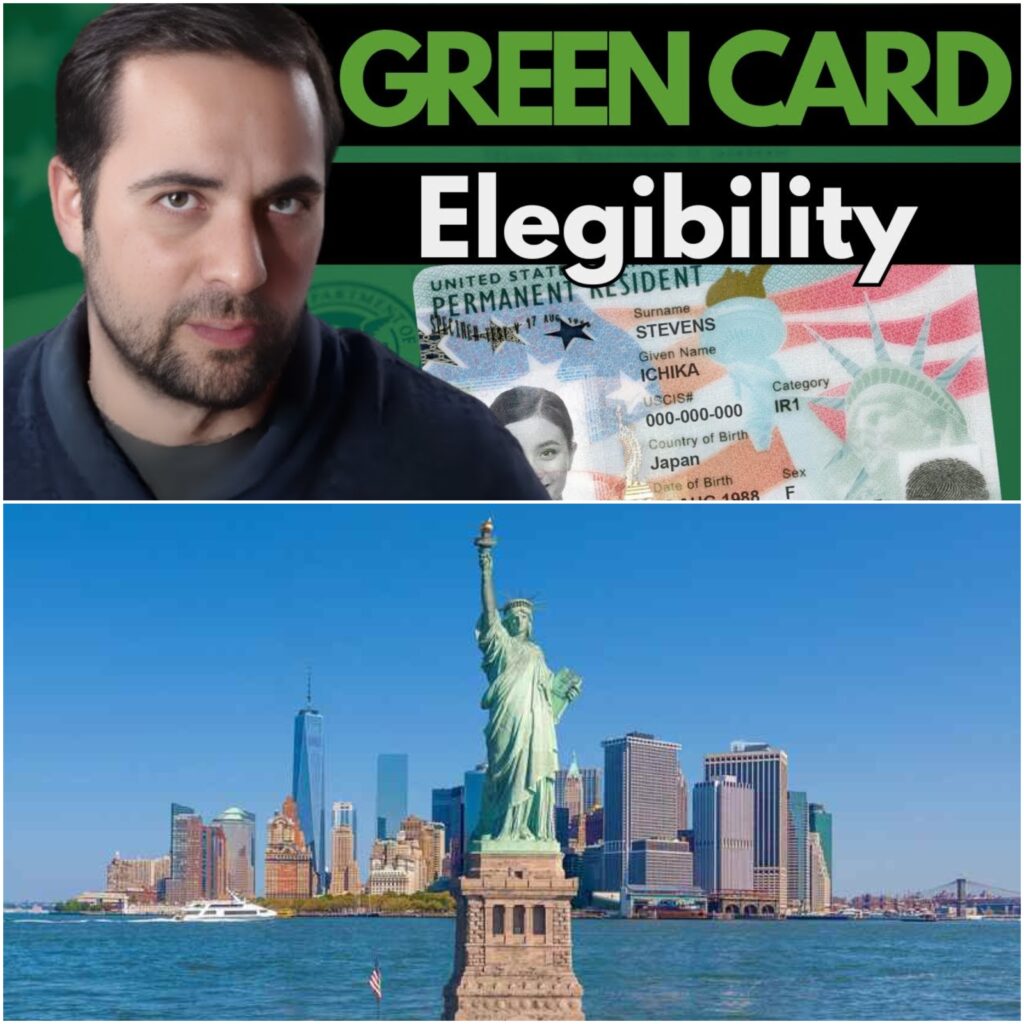People can live and work in the United States for as long as they have a Green Card in USA, which grants permanent status.
It is a significant step for those looking to build a life in the US. Still, understanding the eligibility criteria is essential before applying.
Let’s explore the different pathways to getting a Green Card in USA and the requirements for each.

What is the Eligibility to Get Green Card in USA?
- Family-Based Green Card Eligibility
One of the most common ways to get a Green Card is through a family member who is a US citizen or Green Card holder.
Priority is given to immediate family members, including parents, spouses, and unmarried children under 21 who are US citizens.
Other family members, like siblings or married children of US citizens, may also qualify, but the process can take longer.
The sponsoring family member must provide proof of the relationship and agree to support the applicant financially.
- Employment-Based Green Card Eligibility
Employment-based Green Card in USA are for individuals who have specific job offers and hold extraordinary abilities, or meet other work-related criteria.
These Green Cards are divided into categories,
EB-1: For brilliant teachers, global CEOs, and others with exceptional ability.
EB-2: for experts who possess outstanding skills or advanced degrees.
EB-3: For skilled workers, professionals, and other workers.
Most applicants need an employer to sponsor their application, but some can self-petition under certain conditions, such as extraordinary abilities or national interest waivers.
Read: Can a tourist buy car insurance in USA?
Green Card Through Refugee or Asylum Status
Refugees and asylums can apply for a Green Card after living in the US for one year under their respective statuses.
Refugees must apply for a Green Card, while asylees have the option to do so but are not required.
Applicants in this category need to prove they meet all conditions, including no change in the circumstances that led to their refugee or asylee status.
Diversity Visa Lottery Eligibility
The Diversity Visa Lottery program provides a chance for person from countries with low immigration rates to the US to apply for a Green Card.
Eligibility depends on your country of birth and meeting certain educational or work experience requirements.
Candidates must be at least high school graduates or have two years of experience in a training-intensive position.
Each year, 55,000 visas are available through this lottery.
Special Categories of Green Card Eligibility
Several unique categories can also lead to a Green Card.
These include,
Cuban Adjustment Act: For Cuban citizens who meet specific conditions.
Amerasian Immigrants: For certain individuals have born in Asia to US service members.
Special Immigrant Juvenile: For minors who have been abused, neglected, or abandoned and cannot reunite with their parents.
Each category has specific requirements, so understanding the details is critical.
General Requirements for All Green Card Applicants
No matter which pathway you choose, all applicants must meet certain general requirements.
- This includes having no serious criminal record, providing truthful and accurate information, and proving an intention to reside permanently in the US.
- Proper documentation, including identification, proof of eligibility, and financial support, is essential.

Steps to Determine Your Eligibility
Determining your eligibility is the first step toward obtaining a Green Card.
- Start by researching official resources like the US Citizenship and Immigration Services (USCIS) website.
- Consulting an immigration attorney can also provide clarity, especially if your case is complex.
- Staying updated on immigration policies and procedures will help you avoid mistakes during the application process.
Bottom Line
Understanding the eligibility requirements for a Green Card in USA is essential for starting your journey to permanent residency in the states.
Whether you qualify through family, employment, refugee status, or other pathways, the process requires careful planning and preparation.
Read: Do I need health insurance when travelling to the USA?